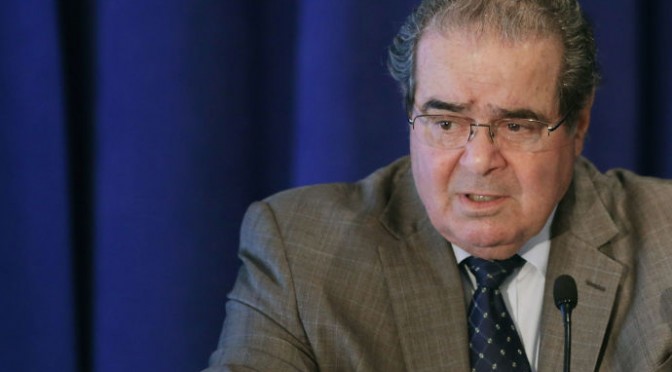The death of Antonin Scalia has marked a significant and surprising development in US politics. Republican senators are vowing to reject any nominee Obama makes to the court and attempting to call into question the legitimacy of the President making a nomination at all, while Obama, the Democrats, and most of the attention-paying public are baffled by this anti-constitutional posturing, all in the name of so-called constitutional filiality.
Of course, however this political showdown turns out, one thing is for certain: Scalia’s departure means things will be shaken up. Whether a new Justice is appointed during Obama’s term or not, the Court is down one arch-conservative, leaving only eight justices behind to wrestle with the cases remaining on the docket.
This year, one of the most controversial cases on the Supreme Court is slated to be Friedrichs v. California Teachers Association. At issue is the union’s right to collect “agency fees,” and the implications of the decision will be far reaching. Will public sector unions be able to sustain themselves through the collecting of fees from public sector workers?
In this case, Scalia’s death is likely to mean a 4-4 decision on the case, sending the decision back to the victor in the lower court, which, in this case, was the union. Alternatively, the case could be re-argued once a new justice is appointed — whenever that may be.
As Charlotte Garden explains in the Atlantic:
At minimum […] Abood is nearly certain to remain good law through the 2016 election. That alone is a victory for public unions, which will not be forced to divert member dues away from political activity in the middle of a presidential-campaign season.
If the Court does set Friedrichs for re-argument—or if the issue reaches the Court again in another case, as it is likely to do—then the outcome will all be down to the new Justice. A Justice appointed by a Democrat is much more likely to vote to uphold Abood than one appointed by a Republican, though there are no guarantees.
Neither case, she adds, will “spell the end of challenges to public-sector unions. Cases with the potential to chip away at organized labor will continue to reach the courts in significant numbers no matter what, and they will proliferate if the next justice is a Republican appointee.” Garden concludes:
So what next for unions? It largely depends on what happens between now and November in the take-no-prisoners battle over Scalia’s replacement. With well-funded, conservative groups filing dozens of constitutional challenges to labor-friendly public-policy regimes, unions have a proverbial Sword of Damocles hanging over them. Replacing Scalia with another conservative justice would almost certainly bring it crashing down. A replacement by Obama, Clinton, or Sanders would likely remove the threat for now, and, depending on who the replacement is, could leave unions with the most labor-friendly Supreme Court since the 1960s.



